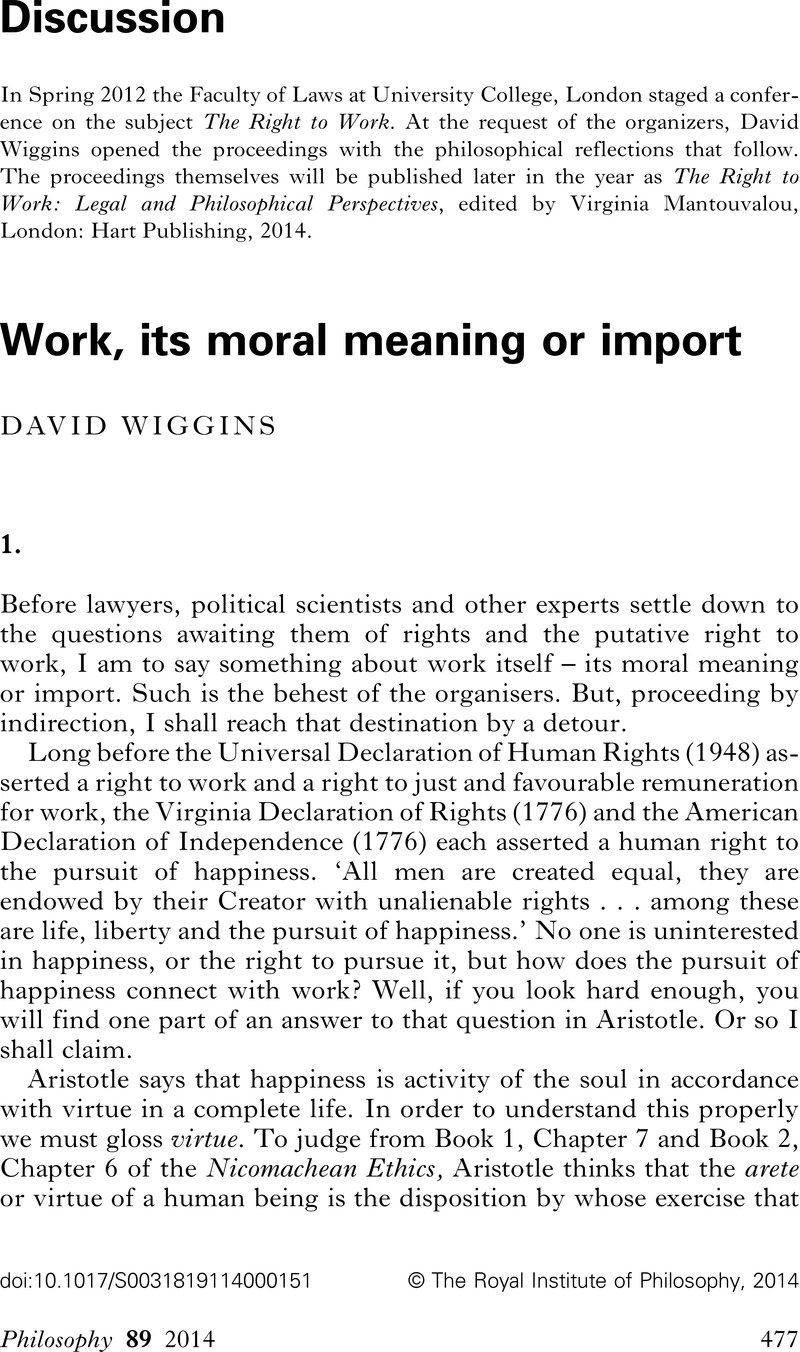Published online by Cambridge University Press: 12 June 2014

In Spring 2012 the Faculty of Laws at University College, London staged a conference on the subject The Right to Work. At the request of the organizers, David Wiggins opened the proceedings with the philosophical reflections that follow. The proceedings themselves will be published later in the year as The Right to Work: Legal and Philosophical Perspectives, edited by Virginia Mantouvalou, London: Hart Publishing, 2014.
1 Nor (one should one remark) do the virtues as Aristotle conceives them correspond exactly either in extension or in conception to those recognized in moral philosophy as we now have it.
2 For a variant upon this, see Conrad, Joseph, Heart of Darkness, Chapter 1 (two pages from the end of the chapter): ‘I don't like work – no man does – but I like what is in the work, – the chance to find yourself. Your own reality, – for yourself, – not for others – what no man can ever know. They can only see the mere show, never tell what it really means.’Google Scholar